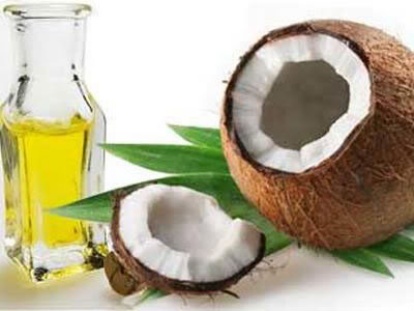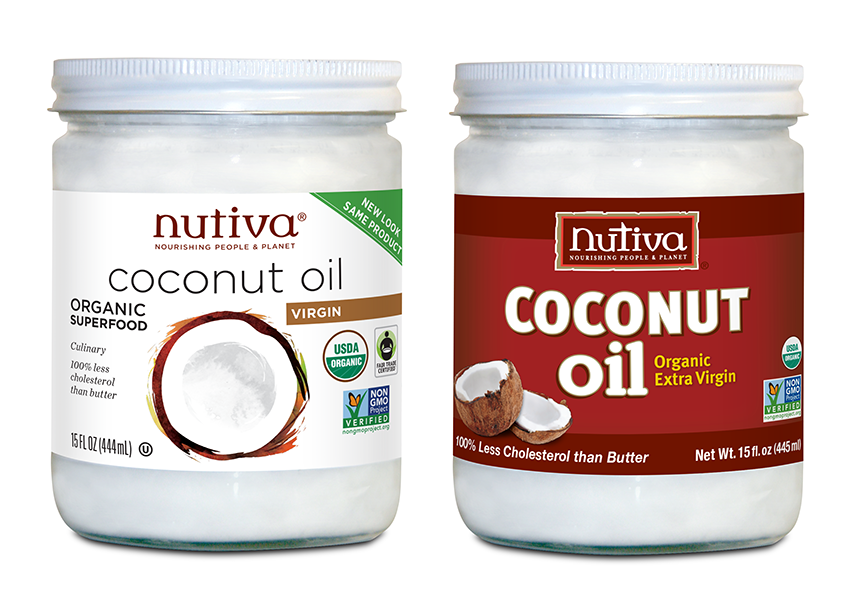 The popularity of coconut oil has sky-rocketed in recent years. However, there’s lots of different kinds of coconut oil, so sometimes it’s hard to understand exactly what you’re getting.
The popularity of coconut oil has sky-rocketed in recent years. However, there’s lots of different kinds of coconut oil, so sometimes it’s hard to understand exactly what you’re getting.
When you walk through the aisles of a grocery store and scan the shelves reviewing each brand of coconut oil, every jar will have slightly different descriptions on the labels. Some brands have chosen to highlight the fact that the oil inside is unrefined, sometimes that it is a superfood, or perhaps that it is cold pressed. Some are organic and some are not.
There is one big difference between the types of coconut oils, and this one you will see over and over again on the labels: whether are the oil is “virgin” or not. Unrefined oil is typically called out using the word “virgin” to mean “the grade of coconut oil that is not refined”.
More interestingly, within this particular description, you may notice that some coconut oils are described as extra virgin and some are described as just virgin coconut oil. So what’s the difference between these grades?
Is extra virgin coconut oil better than virgin coconut oil?
The Difference Between Virgin and Extra Virgin Coconut Oil
What’s the difference between virgin coconut oil and extra virgin? You may be surprised to find out it’s…. NOTHING.
There actually isn’t a USDA recognized grade of extra virgin coconut oil. Just virgin coconut oil. The “virgin” typically means that the oil is unrefined and typically cold pressed.
So Why You See Extra Virgin Coconut Oil On The Shelf?
Why do companies opt to label their coconut oil “extra virgin” vs. “virgin” if there is no extra virgin grade in existence?
It really has to do with the popularity of extra virgin olive oil — extra virgin olive oil is in fact different from virgin olive oil (you can see exactly how here).
The general public understands that extra virgin olive oil is the best grade available, and companies wanting to market their coconut oil as the “best available” have used the grade extra virgin to mirror the olive oil grades.
Other companies, wanting to play by the rules have marketed their coconut oil as virgin — so you do see some variety in terms and descriptions on the shelves for the exact same product.
This has gotten confusing enough that certain companies (like Nutiva, here) have opted to change the marketing of their coconut oil originally marketed as extra virgin back to virgin. In a statement to their customers, they say:
“We embraced the term “extra virgin coconut oil” to distinguish our dedication to the highest quality. In the USA, there is no legal definition or standard for the term, “extra virgin” as it applies to coconut oil. In other countries, however, there are standards of identity regarding the term. For example, in Canada we have always labeled our same high quality coconut oil as “organic virgin coconut oil,” to comply with regulations. As Nutiva continues to grow and offer our coconut oil to more countries with varying regulations, we want to create consistency across all our labels. For this reason, we will be using the term “organic virgin coconut oil” going forward, but our high quality product and processes will remain the same. “ Source
What Is Virgin Coconut Oil?
Virgin Coconut Oil (usually found as organic virgin coconut oil, but the non-organic version does exist too) has the following properties:
- Unrefined (not refined, bleached or deodorized)
- Expeller pressed (mechanically produced, no chemicals used)
- Made from fresh or dried coconut meat instead of copra
- Antioxidant nutrition is maintained
- Often cold pressed (but that doesn't necessarily mean better nutrition)
- Strong coconut flavor
- 76 degree melt point
- Contains healthy MCTs (medium chain triglycerides) & lauric acid
This is in opposition to Coconut RBD Oil, which is a different grade and does have different characteristics (though some are still the same).
- Refined, bleached and deodorized (RBD)
- Made from "copra" instead of fresh or dried coconut meat
- Most often solvent expelled (though expeller pressed method does exist)
- Very little coconut flavor
- 76 degree melt point
- Contains healthy MCTs (medium chain triglycerides) & lauric acid
Learn More
To learn more, we suggest reading the following articles:
At A Glance: Coconut Oil Grade Comparison
Comparing The Different Grades Of Coconut Oil: Refined Vs Virgin
Topics: Coconut Oil













